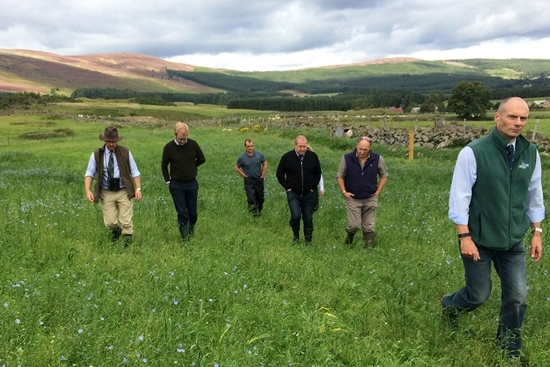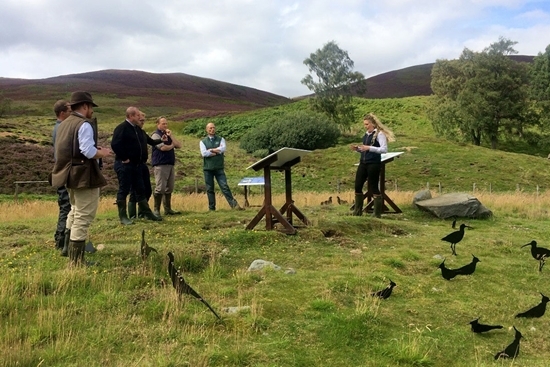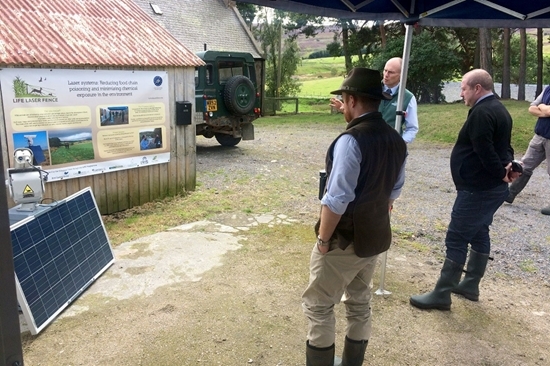On a much-needed sunny day in Aberdeenshire recently, GWSDF Auchnerran welcomed Graeme Dey MSP, convenor of the Environment, Climate Change and Land Reform Committee (ECCLRC); and Andrew Proudfoot, senior assistant clerk to the committee.

The farm tour incorporating a walk through one of the
highland cereal game crops, kindly supported by Kings Seeds.
We gave Graeme and Andrew a tour of the farm, demonstrating all aspects of our work, including the improvements to the farm system that mean the black-face sheep flock is now healthier and more productive than when we took on the tenancy; the game crops that have finally escaped the attentions of the burgeoning rabbit population; and the biodiversity monitoring and research work that helps inform management decisions on the farm.

Marlies Nicolai, GWSDF Research Assistant, summarising some of our work on the farm.
Graeme represents a rural constituency, and his remit as convenor of the ECCLRC means he is well versed in all manner of rural issues, so we had a full and frank conversation on a range of issues such as farm subsidy, Brexit and predator control. Of particular interest was the spring trapping and snaring elements to predation management on the farm and surrounding countryside. Here we outlined how GWCT research has influenced key decisions in hardware improvements of modern snares and the vital role spring traps play in nature conservation in this country.
This also included the LIFE Laser Fence project, which aims to test low-powered bird-scaring lasers on mammals to see if they might offer a practical alternative to other control methods. At Auchnerran, this work is currently focusing on rabbits, which are at such a level currently that they are having a measurable impact on the grazing available to the sheep flock. If we can develop a workable method using the lasers, we might be able to exclude this major pest from a number of fields at key times of the year.

An informative briefing on the LIFE Laser Fence project.
These events, at GWSDF Auchnerran and elsewhere in the Trust, are an extremely important part of our knowledge transfer work, enabling us to show key influencers what we are doing and making sure they fully understand the pertinent facts.